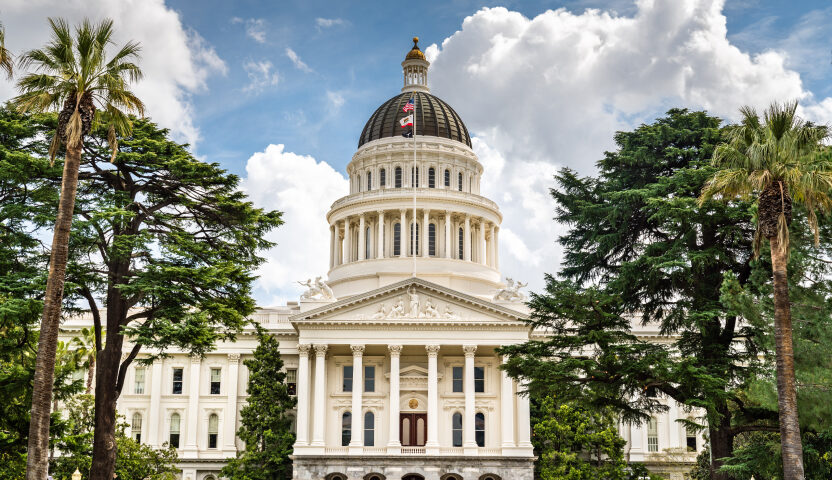
We recently spoke with more than 370 California policymakers to gain an understanding of California’s top policy priorities. As one of the largest and most populous states, the Golden State is a leader in policy regulation, and thus the state’s policy challenges are a crucial pulse check for the rest of the country. Our research, conducted between April and September 2022, surveyed state and local decision-makers on California’s highest policy priorities, as well as gauged perceptions of the private sector in engaging with the identified challenges. With the midterm elections top of mind for decision-makers across the state, this insight into California’s top challenges is key to identifying priorities for state stakeholders.
Policy leaders across the state reveal housing, the environment, infrastructure, and healthcare as top priorities – with housing being priority number one across party lines. Here, we highlight California’s policy priorities, and where decision-makers want to see involvement from the private sector, particularly when it comes to corporate social responsibility (CSR).
n=317
WHAT CALIFORNIA POLICYMAKERS ARE SAYING
“I think housing right now is extremely important. It’s really bad here in California. Lack of housing and the price of housing, and tied in with that is homelessness. I think there’s some connection there between those two problems.” – Advisor, Executive Branch, D
“I would say the number one policy priority in California is climate change. So we’re talking about sea level rise, climate adaptation strategies, giving the private sector leverage to build our infrastructure and combat heat in certain communities and air quality issues.” – Consultant, State Legislature, R
“There’s always infrastructure needs, no matter what. It would be nice if the state worked a little bit more proactively with the needs of the cities.” – Acting Mayor, Municipality, D
“One of the big concerns we have is addressing the housing shortage in California. We need to provide more flexible and more attainable housing rights for all income brackets. Right now, you have to be a millionaire in order to buy a house in California.” – Capitol Director, State Legislature, R
AREAS FOR MORE PUBLIC-PRIVATE COLLABORATION
Across party lines, almost half – 46 percent – of policymakers surveyed think that the response of the private sector has been ineffective in helping alleviate the most pressing issues in the state. They want to see more involvement from private actors in helping solve top concerns in local communities, especially regarding priorities like housing and healthcare. Decision-makers also want to see increased engagement between state and local governments and the private sector in creating equitable policy solutions for communities.
n=308
“I think that the only way for us really to truly get anything done is with partnerships. Private partnerships are always the best because they can happen quickly, and there’s more buy-in and engagement if you have a private partnership.” – Mayor, Municipality, R
COMMITMENT TO CORPORATE SOCIAL RESPONSIBILITY
In addition to increased public-private partnerships, policymakers across party lines want to see an increase in private sector commitment to corporate social responsibility (CSR). In fact, when thinking about the organizations, they respect the most, 83 percent of policymakers cite the commitment to CSR-related activities to be important.
WHAT POLICYMAKERS ON THE GROUND ARE SAYING ABOUT CSR
“I think one of the benefits is that we as policymakers have a better understanding of what the community needs. Part of that community is business. So it’s helpful to understand with collaboration what the goals are and how we can be aligned in a way that benefits Californians. We obviously are the ones who set policy here, but we have a lot of corporations here in California with very strong views on things. So to the extent that they’re able to sort of inform the process and not derail it, I think it’s a useful relationship.” – Legislative Director, State Legislature, D
“I don’t think the public displays of virtue are very helpful, I would prefer to actually help those communities that are most affected. We see that in local government, and all of the corporate statements and public agency resolutions are doing nothing to make a difference there.” – Municipality, R
CSR AND THE COMMITMENT TO DEI
As part of increasing corporate social responsibility in the private sector, many policymakers believe a commitment to diversity, equity, and inclusion (DEI) initiatives to be important. In fact, 58 percent of decision-makers believe companies and associations should prioritize efforts to improve staff diversity and retention, and when asked about organizations they respect the most, more than 50 percent of policymakers find a commitment to DEIJ to be highly important.
CONCLUSION
As we approach the end of 2022, California policymakers are tackling several policy challenges and want to see the private sector involved in finding equitable solutions across communities in the state. Almost half of the decision-makers across party lines agree that the private sector has been ineffective in helping tackle the state’s most pressing challenges, including housing, healthcare, infrastructure, and the environment. To help resolve these issues, policymakers want to see more engagement from companies in addressing these policy priorities.
Contact Us